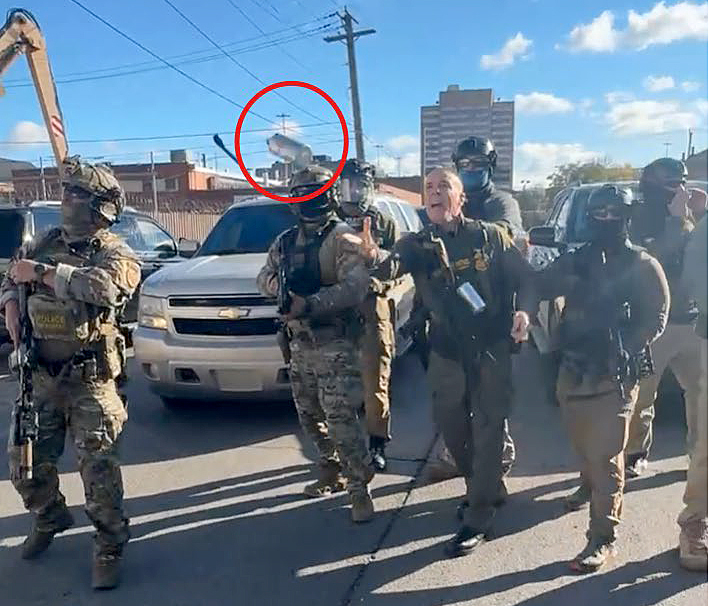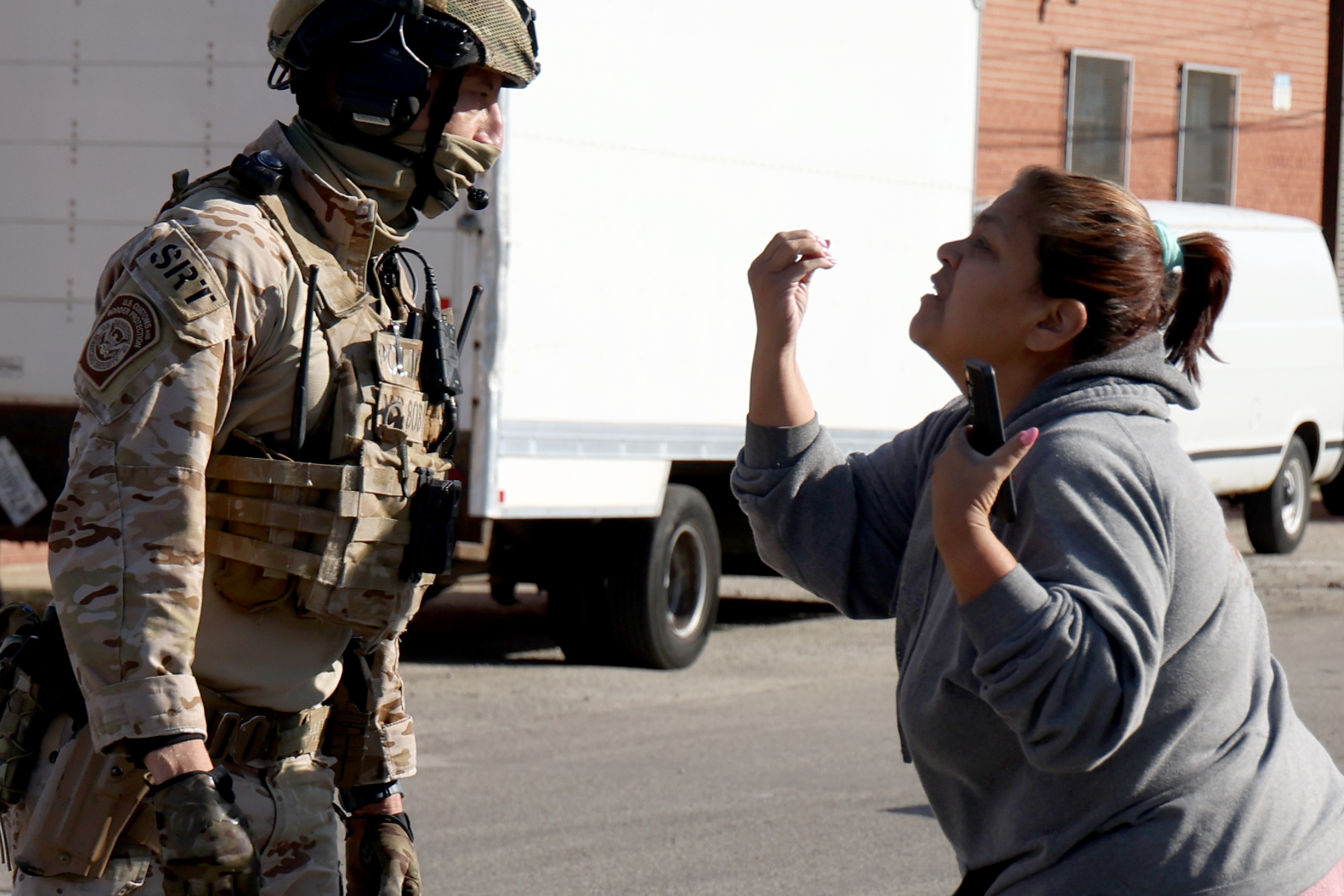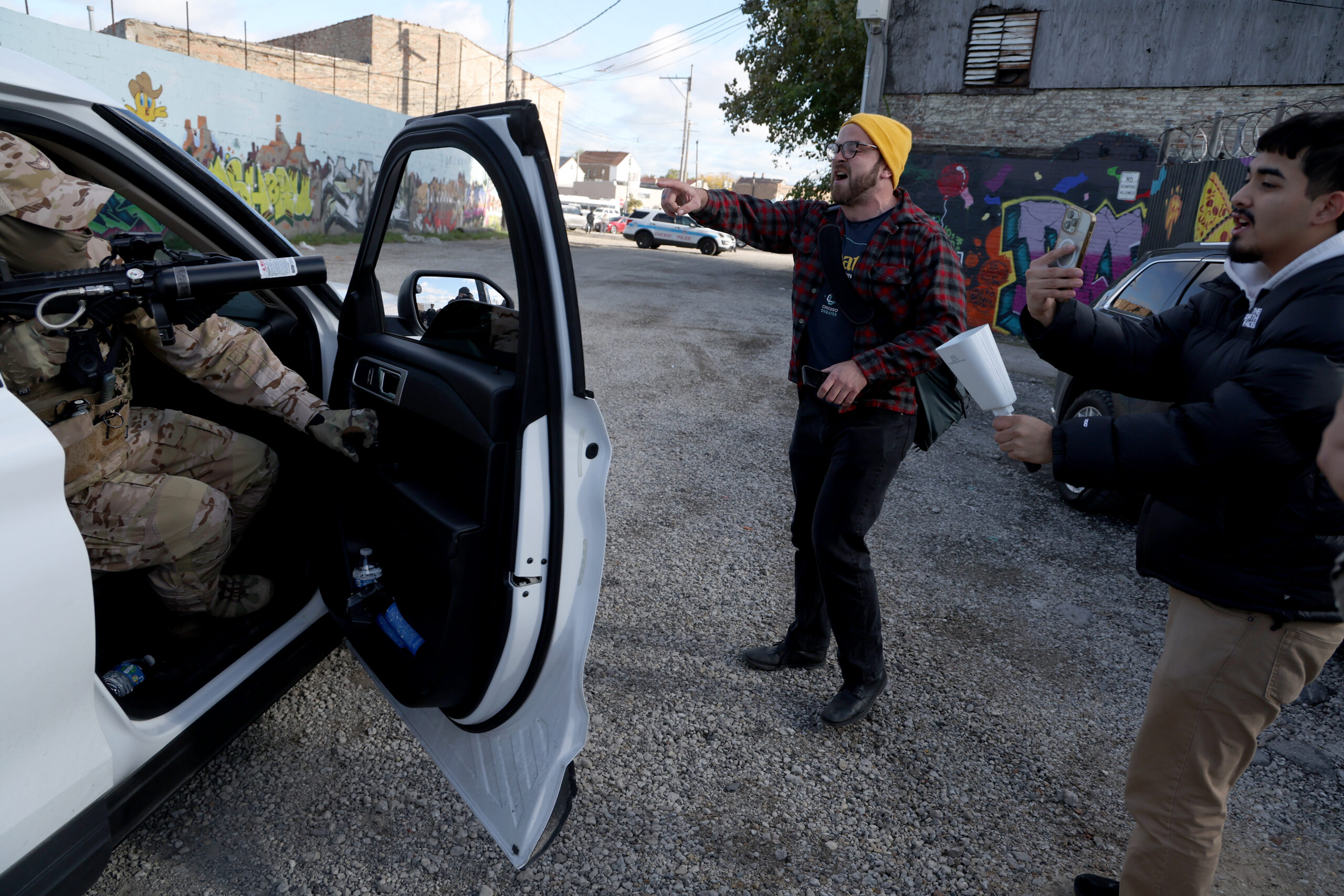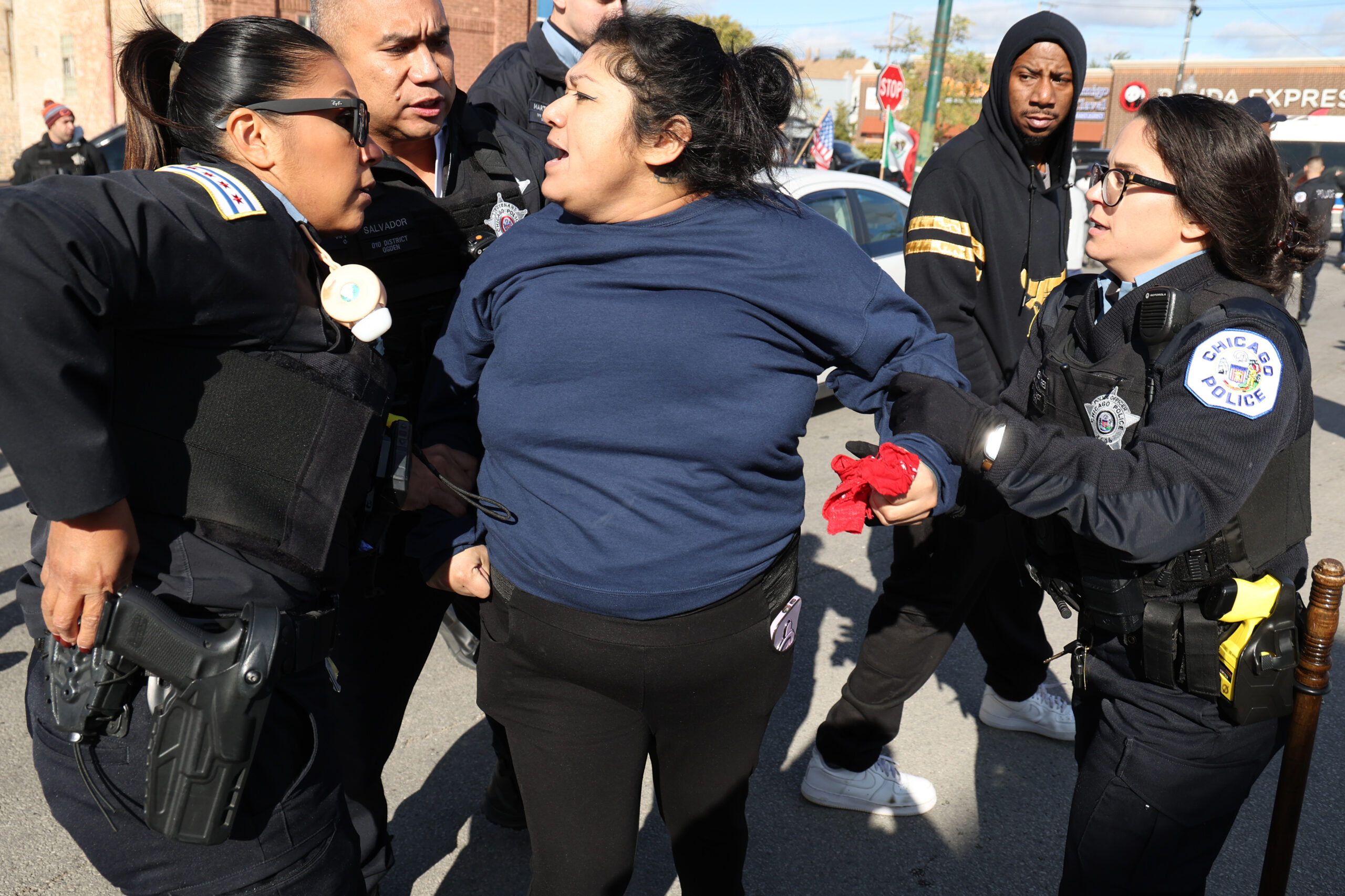A federal judge in Chicago on Thursday said she will issue a sweeping injunction that puts more permanent restrictions on the use of force by immigration agents during “Operation Midway Blitz,” saying top government officials lied in their testimony about threats that protesters posed and that their unlawful behavior on the streets “shows no signs of stopping.”
“I find the government’s evidence to be simply not credible,” U.S. District Judge Sara Ellis said in an oral ruling from the bench, describing a litany of incidents over the past month and a half where citizens were tear-gassed “indiscriminately,” beaten and tackled by agents and struck in the face with pepper spray balls.
Ellis said in particular that Border Patrol Cmdr. Gregory Bovino lied repeatedly in his deposition testimony about force that his agents and he personally inflicted in incidents across the Chicago area.
“In one of the videos, Bovino obviously attacks and tackles the declarant, Mr. Blackburn, to the ground,” Ellis said. “But Mr. Bovino, despite watching this video (in his deposition) says that he never used force.”
Ellis was still reading her justifications for the new order late Thursday morning.
The preliminary injunction replaces a temporary restraining order issued by Ellis in early October that was set to expire at 11:30 a.m. The judge said she’d put out a more fulsome written ruling in the coming weeks.
Ellis’ ruling came after a marathon day of evidence Wednesday that featured the sworn videotaped deposition of Bovino, the tough-talking face of the Trump administration’s immigration enforcement push, as well as live testimony from more than a half dozen witnesses who said immigration agents pointed guns at citizens and threatened to arrest protesters who were doing nothing more than recording the agents’ activities on the street.
One of them, 12th Ward Ald. Julia Ramirez, testified she went to the scene where an agent had shot a woman in Brighton Park on Oct. 4 and was stunned to see immigration agents rolling what looked like a tank down Kedzie Avenue. Perched on top of the armored vehicle, an agent was pointing a gun at the crowd, she said.
“I couldn’t even believe I was living that. I felt helpless,” Ramirez testified, adding that the episode has had a “chilling” effect on residents and her personally. “I carry my passport around. My grandmother who is also a U.S. citizen doesn’t leave the house. I have to go out for her.”
But the judge also heard from a Border Patrol supervisor who testified about the violence and threats agents have been subjected to on Chicago-area streets, including protesters who fired commercial-grade fireworks at them, wielded makeshift shields outfitted with nails, and threatened ram their vehicles or call in gang members to shoot them.
Kristopher Hewson, a 19-year veteran of U.S. Customs and Border Patrol, was asked near the end of the day whether he had “hesitation” about testifying.
“Of course I did,” he says. “Coming in here with my face exposed and my name exposed could eventually lead to a doxing event or threats of harm to my family.”
But it was the testimony of Bovino, who came to Chicago in mid-September after similar operations in Los Angeles, that was center-stage.
Although the deposition itself lasted more than six hours, Ellis watched only clips of Bovino’s testimony in which he not only did not back down one bit on the tactics his officers have used during “Operation Midway Blitz,” but even doubled down.
Asked at one point by veteran Chicago civil rights attorney Locke Bowman if he stood by remarks he made to CBS that the use of force at the Broadview ICE facility has been “exemplary,” Bovino at first surprised everyone by saying, “No.”
“The uses of force have been more than exemplary,” Bovino then clarified.
But plaintiffs attorneys accused Bovino of lying repeatedly in his testimony, including a blatant misrepresentation about what happened during a high-profile incident in Little Village, where Bovino was seen leading an immigration action that targeted a laundromat and discount mall and sparked vehement protests on the streets.
At one point, Bovino was captured on video throwing tear gas above the heads of the crowd without warning and “despite an absence of threats or violence,” the filing alleged.
Bovino claimed he only did so after being hit in the head with a rock — a statement repeated on social media and again in his deposition, even though no video or other evidence of it happening ever surfaced.
It wasn’t until Bovino came back for a third round of questioning Tuesday that he admitted it had not occurred, Steve Art, lead attorney for the plaintiffs, told the judge in his closing argument.
“A government agent who is leading this operation cannot come into court and make stories up and expect to be treated like a credible witness,” Art said.
In their arguments, the plaintiffs said the abuses of immigration agents on the streets of Chicago comes from the very top, including President Donald Trump, who made it “abundantly clear that he elected Chicago for this operation he then ordered and directed DHS to commence this operation here.”
They played video of Department of Homeland Security Secretary Kristi Noem giving a pep talk to Bovino and his agents at the Broadview facility in early October, saying they should “go hard” at people who voiced dissent against law enforcement tactics — language Bovino later incorporated into his own public statements.
In his closing, Art said the Department of Homeland Security has “unleashed weapons of war” on Chicago.
“They are using a gas that is banned even in war,” Art said. “They are inciting violence and then they are using the violence that they have created to justify even more violence. They hare harming everyone.”
At the end of his argument, Art turned toward the Department of Justice attorneys at the defense table and said, “In our opinion, these defendants should be ashamed of themselves.”
“In our opinion, this is a disgrace,” Art said. “And one of the great things about our constitution is that if that’s what we think, we can say it.”
DOJ lawyer Sarmad Khojasteh countered by arguing the case is not about exercising free speech, but allowing law enforcement to do its job in the face of agitators who conflate constitutional rights with violent action.
“This case addresses to what extent does the freedom of speech protect people throwing rocks, bottles, trespassing, pinning down law enforcement, slashing tires, wielding weapons,” Khojasteh said.
jmeisner@chicagotribune.com




